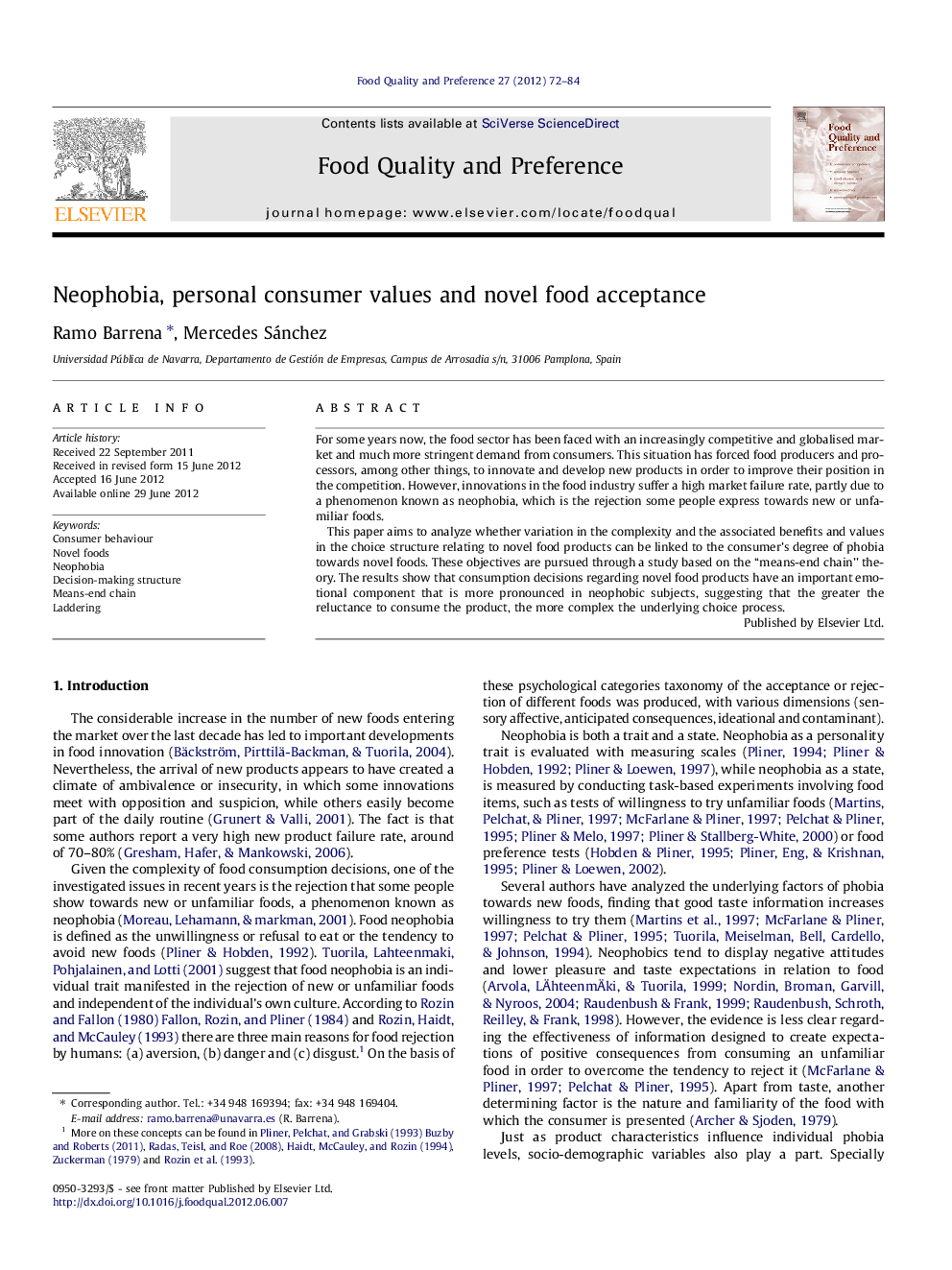| Article ID | Journal | Published Year | Pages | File Type |
|---|---|---|---|---|
| 4317405 | Food Quality and Preference | 2013 | 13 Pages |
For some years now, the food sector has been faced with an increasingly competitive and globalised market and much more stringent demand from consumers. This situation has forced food producers and processors, among other things, to innovate and develop new products in order to improve their position in the competition. However, innovations in the food industry suffer a high market failure rate, partly due to a phenomenon known as neophobia, which is the rejection some people express towards new or unfamiliar foods.This paper aims to analyze whether variation in the complexity and the associated benefits and values in the choice structure relating to novel food products can be linked to the consumer’s degree of phobia towards novel foods. These objectives are pursued through a study based on the “means-end chain” theory. The results show that consumption decisions regarding novel food products have an important emotional component that is more pronounced in neophobic subjects, suggesting that the greater the reluctance to consume the product, the more complex the underlying choice process.
► Food innovations suffer a high market failure rate partly due to neophobia. ► Food consumption has an emotional component more pronounced in neophobic subjects. ► Neophobic consumers project more personal values in the consumption decision. ► Irrespective to neophobia levels, consumers adopt new food for hedonic reasons. ► The type of innovation determines key factors in novel food buying process.
